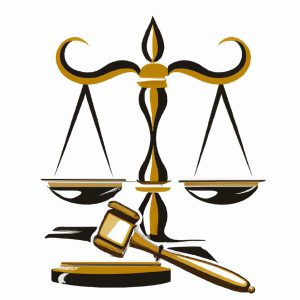In the intricate world of estate planning, the creation and management of a trust is a pivotal tool in ensuring the smooth transition of assets to future generations. With the establishment of a trust come the essential tasks of accurately listing and documenting the assets held within it. This process, while meticulous, is a critical step in safeguarding the integrity of the trust and adhering to legal requirements. At Morgan Legal Group in New York City, our team of experienced lawyers specializes in estate planning, probate, elder law, Wills, and trusts. In this article, we will delve into the intricacies of how to effectively list assets in a trust, elucidating the key considerations and best practices for trustees to keep in mind.
Identifying Assets Eligible for Inclusion in a Trust
When it comes to , there are specific criteria that must be met to ensure successful estate planning. As an experienced lawyer, I recommend following these guidelines to effectively list assets in a trust:
To list assets in a trust, consider the following:
- Real Estate: Include properties, land, and any real estate investments.
- Financial Assets: Include bank accounts, stocks, bonds, and retirement accounts.
- Personal Property: Include vehicles, jewelry, artwork, and other valuable possessions.
- Business Interests: Include ownership stakes in businesses or partnerships.

Strategies for Valuing and Assessing Trust Assets
When it comes to valuing and assessing assets held within a trust, there are several key strategies that can be employed to ensure accuracy and compliance. One important step is to clearly identify and list all assets within the trust, including real estate, investments, personal property, and more. This comprehensive list will serve as a foundation for the valuation process and help determine the overall value of the trust.
Additionally, it is crucial to obtain professional appraisals for certain assets, such as real estate, art, jewelry, and other high-value items. These appraisals will provide an objective and accurate assessment of the assets’ worth, which is essential for tax purposes and distribution among beneficiaries. Trust administrators should also consider consulting with financial advisors and legal professionals to ensure that all assets are properly valued and accounted for in accordance with trust laws and regulations.

Documentation and Record-keeping Requirements for Trust Assets
In order to properly document and keep records of trust assets, it is essential to maintain detailed lists that accurately represent the entirety of the trust’s holdings. One effective method is to create a comprehensive inventory that outlines each asset within the trust, including but not limited to:
- Real Property
- Investment Accounts
- Personal Property
- Business Interests
It is imperative to include specific details such as the description of the asset, its current value, acquisition date, and any relevant documentation supporting its inclusion in the trust. By maintaining thorough and organized records, trustees can ensure transparency and accountability in managing trust assets. Moreover, it aids in fulfilling fiduciary duties and facilitating the distribution of assets according to the terms of the trust document.
| Asset Description | Value |
|---|---|
| Real Property | $500,000 |
| Investment Accounts | $1,000,000 |
| Personal Property | $100,000 |
| Business Interests | $300,000 |
Q&A
Q: What is a trust and why would someone want to list assets in one?
A: A trust is a legal arrangement in which a trustee holds and manages assets on behalf of beneficiaries. Someone may choose to list assets in a trust to protect them from probate, ensure their distribution according to their wishes, and potentially reduce estate taxes.
Q: How do you go about listing assets in a trust?
A: To list assets in a trust, you first need to create a trust document outlining the terms and conditions of the trust. Then, you will need to transfer ownership of the assets to the trust by changing titles, deeds, or beneficiary designations.
Q: What types of assets can be listed in a trust?
A: Most types of assets can be listed in a trust, including real estate, bank accounts, investments, business interests, and personal property. However, certain assets such as retirement accounts and life insurance policies may have special considerations.
Q: Are there any potential drawbacks to listing assets in a trust?
A: While listing assets in a trust can offer numerous benefits, it may also involve fees for creating and maintaining the trust, as well as the loss of direct control over the assets. Additionally, not all assets may be suitable for placement in a trust.
Q: How often should assets in a trust be reviewed and updated?
A: It is recommended to review and update the assets listed in a trust regularly, especially after significant life events such as marriage, divorce, birth of children, or changes in financial status. This helps ensure that the trust continues to align with your wishes and goals.
In Conclusion
As you navigate the process of listing assets in a trust, remember that careful planning and attention to detail are key. By taking the time to identify and document each asset, you can ensure that your trust serves its intended purpose and provides for your loved ones in the future. If you have any questions or need assistance, don’t hesitate to consult a legal or financial professional. With the right guidance, you can create a secure and effective estate plan that reflects your wishes and protects your assets for generations to come. Happy planning!












